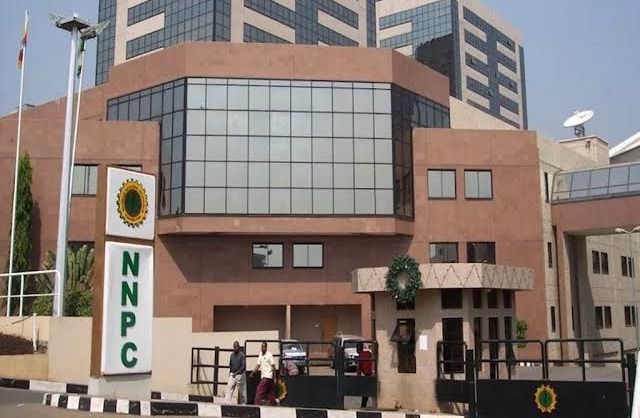Najim Animashaun, a Policy Adviser and Lawyer, has given an insight as to why it is difficult to entrench the culture of change in the Nigerian National Petroleum Corporation (NNPC).
TheNewsGuru.com (TNG) reports Animashaun gave the insight on Friday during a Twitter conference with the theme: “Reforming NNPC towards operational efficiency and commercial effectiveness”, hosted by the Nigeria Natural Resource Charter (NNRC).
He was speaking against the backdrop of how the NNPC has been able to stay committed to Transparency, Accountability, Performance and Excellence (TAPE), and how effective the national oil company has been able to sustain these practices in culture and in law.
The Policy Adviser and Lawyer stated that passing a new law will work if it is linked to organizational reform like the one being pushed by the current Group Managing Director of the NNPC, Mele Kyari.
He further stated that the NNPC GMD and management have so far followed up on their promises, stressing that published audited accounts for 2018 are very revealing and that it is a product of TAPE.
“However, every aspect of TAPE has a human resource component as well as an organisational structure and function one,” Animashaun stated, adding that “GMDs are perceived as political appointees” and that “20 GMDs in 42 years makes it difficult to entrench change initiatives in organisational culture” for the NNPC.
Speaking on recommendations for the reform of the national oil company, he stated that the NNPC needs to learn from Petrobras and Equinor, the national oil companies of Brazil and Norway, respectively.
Meanwhile, the NNRC had earlier in a statement pointed out that the NNPC falls short on different counts when benchmarked with similar national oil companies.
“Comparing Norway’s Equinor and NNPC, performance records show that Equinor’s three refineries averaged 92.8% capacity utilisation in 2018 while NNPC’s three refineries recorded 11.21%.
“A 2015 comparison of average refinery capacity utilisation in the USA of 90.98% and Nigeria of 4.88% is even worse.
“Unless NNPC’s refineries can operate at minimum 90% capacity they will continue to lose money.
“In the area of revenues accruing to government, NNPC’s performance compared to Petrobras (of Brazil), or Petronas (of Malaysia) shows gross inefficiency.
“Even when benchmarked with similar national oil companies in Africa such as Sonatrach of Algeria and Sonagol of Angola, the NNPC still falls short on different counts,” the non-profit policy institute stated.
TNG reports over the years, NNPC has consistently underperformed against the NNRC’s global best practice benchmark for optimal national oil company performance.
The benchmark prescribes that national oil companies be ‘accountable’ to their citizens and government, with ‘well-defined mandates and an objective of commercial efficiency’.
The NNRC called on the FG to use the opportunity provided by the prevailing socio-economic situation nationally and globally to embark on complete overhaul of the country’s oil and gas sector, in particular the NNPC to make it both competitive and productive in line with international best practices.
According to NNRC, “holistic improvements across the NOC will ‘require clear and appropriate decisions and role of the NOC and how it is financed, corporate governance systems that limit political interference and allow for efficient oversight, and a commitment to transparency and accountability’.
“It is expected that the NOCs that will succeed in maximizing their potential enterprise value, and thus maximize their revenue contribution to the nation, will be those who succeed at building strong governance along with capital and operational excellence into their culture”.
Another area highlighted by the NNRC as a big challenge to the growth of the NNPC is the issue of corporate governance.
The institute noted that peer group companies that are wholly government owned like the NNPC do have strong governing boards constituted by competent professionals, instead of preference for political representation.
“The NNPC is the only NOC with a serving government minister on its board. This brings unintended political baggage which impacts negatively on the smooth running of the organization.
“Closely linked to governance, management and delivery is the concern for organizational flux. Compared to other NOC’s the NNPC has had far more executive turnover.
“Unlike Petronas where the average tenure of a CEO is 6 years, and 9 years in Saudi Aramco NNPC by contrast has had 20 GMDs in 42 years, an average tenure of 2 years per chief executive,” it stated.
Reforming the Corporation, according to the NNRC requires new thinking and new strategies.
“It starts with the recognition that NNPC is not and was never designed, from the beginning, to be a commercially driven enterprise. Had it been so, it would have been capitalised, granted more operational autonomy and burdened with fewer regulatory functions as in the NNPC Act.
“Its governing board would reflect that of a commercial enterprise, even if government owned like Saudi Aramco, with fewer ‘political appointees’.
“No doubt the Petroleum Industry Bill will be a good platform to remedy the deficiencies in particular as it goes to greater lengths to separate commercial entities from regulatory authorities, leaving the national oil company to focus on finding, producing and commercializing petroleum resources,” the statement reads.
However, the NNRC commended NNPC for its commitment to its TAPE agenda and its recent efforts to it by publishing the 2018 audited reports of its subsidiaries.
“Still, there remains a need for greater transparency and accountability. It is expected that these practices will survive the present administration and going forward become part of the corporate culture,” NNRC stated.


